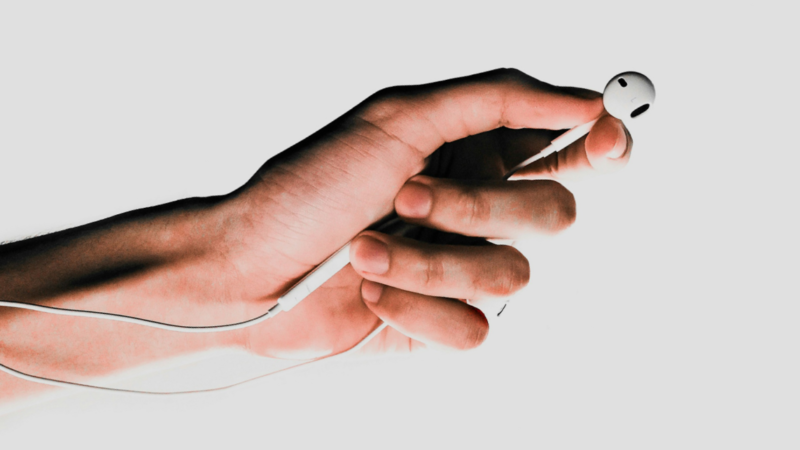
Der Computer sagt Hausfrau
Stellen Sie sich vor, Sie werden entlassen, geben Ihren Arbeitscomputer zurück, während Sie den alten für die Heimschule Ihres Kindes abstauben. Nach der Pandemie ist das Arbeitsamt überfüllt, und es gibt nur wenige offene Stellen. Vielleicht könnten Sie sich freiberuflich betätigen, während Sie nach etwas Dauerhaftem suchen? Aber zuerst müssen Sie sich einen Computer anschaffen, an dem Sie arbeiten können.
Desperate housewives of the pandemic
There is no shortage of laptop models and financing options. After selecting a computer and filling in the online application form for an instalment loan, you get redirected to a credit company’s website, which denies it on the grounds that you are unemployed. Indeed, you cannot prove that you have a regular income and your SCHUFA score has taken a hit from missed payments. Maybe you could get the loan as a freelancer? But budding entrepreneurs are not eligible for credit either. You are getting desperate, as without the computer, you are cut-off from employment opportunities and the post-pandemic society at large. There is one more option left in the loan application to self-identify with – a Hausfrau (housewife). Add the name of your spouse as a co-lender, submit information about his income and your new computer is on its way. Congratulations – you were just saved by a financing relic from an era in which men were the breadwinners and women’s household labour was unpaid.
Women’s possibilities to access digital technology are hindered by inequalities in accessing credit. EU consumer credit laws oblige creditors to assess the creditworthiness of the consumer prior to extending credit from a database such as SCHUFA in Germany. Yet, the mechanisms for evaluating creditworthiness as well as available financing instruments may have marginalising effects that reinforce gender inequality, especially in the post-pandemic context and ultimately undermine enjoyment of human rights. The granting of most consumer loans is conditional upon a proof of stable income and a positive SCHUFA score, both of which may be in short supply in an economic crisis. Consumers ineligible for normal consumer loans must turn to alternative financing opportunities such as the Hausfrauenkredit (Housewife’s credit) and loans without SCHUFA.
Alternative credit for the marginal?
Hausfrauenkredit was initially offered to enable “the housewife” to take care of some of her private needs and household expenses. Its distinct characteristic is the requirement of a co-signature from a spouse with a good credit score, which remedies the lack of stable income or lack of creditworthiness of the person seeking for a loan. Despite its name, the application of Hausfrauenkredit is no longer gender-specific, and a co-signature can be obtained from persons other than a spouse, extending its availability to a larger population of the precariat. In both cases, the means of access to credit and ultimately enjoyment of fundamental rights is conditional on having a close relationship with a person holding a more powerful position within society than the loan applicant. This has implications for the autonomy and dignity of that person. They may, for instance, become vulnerable to economic abuse, which diminishes an abused partner’s chances from exiting a relationship, creating a spiral of violence of different forms. Women and marginalised groups are more likely to be subject to such abuse.
Single persons with limited support networks, such as immigrants and single parents, have fewer options to obtain a guaranteed loan. Groups ineligible for common forms of credit may turn to creditors that do not require a positive SCHUFA or proof of sufficiently high income. Such service providers are a motley crew of institutions ranging from Swiss Banks that check creditworthiness with means other than SCHUFA to providers who prey on persons in vulnerable financial situations. Even with legitimate providers, the lack of stable income or limited creditworthiness translates into a higher interest rate for the loan. Taking such loans may ultimately reinforce a cycle of marginalisation, especially for groups with more limited financial literacy.
A human rights bottleneck
The pandemic has confined us in our homes and moved our daily lives to the digital sphere. Yet, this digital leap has not been taken on an equal footing. Economically disadvantaged households have fewer options for acquiring new technology that would enable more seamless integration in the post-pandemic world. Many struggle with finding employment, which accelerates the risks of social and financial exclusion. In the post-pandemic context, the vicious cycle of digital divide, financial insecurity and lack of access to credit risks marginalising women in particular. Pink collar sectors, such as accommodation and food services, retail and the arts have been hit the worst. Furthermore, the closure of schools and daycare together with unequal distribution of family responsibilities pull women from the employment market. The problems of sharing and accessing digital devices as well as financing hinders female entrepreneurship.
If it does not acknowledge the indispensability of access to technology, the post-pandemic world may push women into the precariat and economic dependency and strengthen inequalities as a whole. Whatever the policy measure chosen to combat these risks, it must acknowledge that the gendered division in access to financing and therefore to technology may create a bottleneck in the enjoyment of human rights for the most vulnerable – ranging from freedom of expression and information, engaging in work and choosing one’s occupation and conducting business. Internet access has been proposed as a human right in itself and adopted in the legislation of several countries and viewed as indispensable for the enjoyment of other human rights. Also consumer loans have become a means of access to basic needs and rights, especially for those who are already financially struggling and particularly at times of economic disruption. Gendered inequalities in the access to internet and technology are reinforced by those in the access to credit. The dynamic narrows women’s opportunities to maintain financial independence and to live with dignity in the post-pandemic world.

Jetzt anmelden und die neuesten Blogartikel einmal im Monat per Newsletter erhalten.
Data Governance
Freundlich, aber distanziert: Die unbeabsichtigten Folgen KI-generierter E-Mails
KI-generierte E-Mails sparen Mitarbeitenden Zeit und erleichtern den Arbeitsalltag. Aber verlieren wir dadurch unsere Kommunikationsfähigkeiten?
KI am Mikrofon: Die Stimme der Zukunft?
Von synthetischen Stimmen bis hin zu automatisch erstellten Podcast-Folgen – KI am Mikrofon revolutioniert die Produktion digitaler Audioinhalte.
Haben Community Notes eine Parteipräferenz?
Dieser Artikel analysiert, ob Community Notes Desinformation eindämmen oder ob ihre Verteilung und Bewertung politische Tendenzen widerspiegeln.





